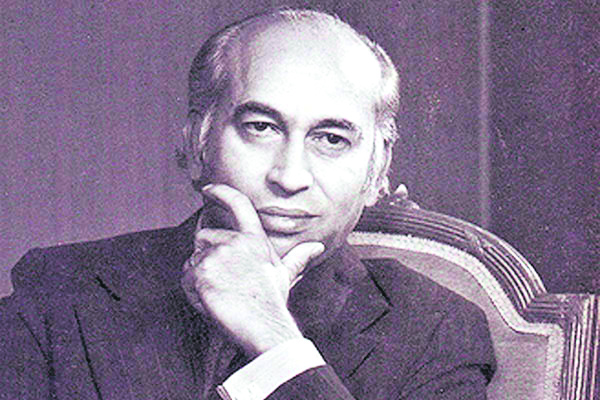Pakistan’s Supreme Court ruled on Wednesday that former Prime Minister Zulfikar Ali Bhutto, who was hanged 44 years ago after being convicted of murder, didn’t get a fair trial.
Bhutto, the founder of the Pakistan Peoples Party (PPP) now run by his grandson and former foreign minister Bilawal Bhutto Zardari, was hanged in 1979 after a trial under the military regime of late General Zia-ul-Haq.
“We didn’t find that the fair trial and due process requirements were met,” said Chief Justice Qazi Faez Isa in remarks telecast live of the ruling that he said was a unanimous decision by a nine-member bench headed by him. The ruling came in response to a judicial reference filed by Bhutto Zardari’s father, Asif Ali Zardari, during his tenure as president in 2011. It sought an opinion by the top court on revisiting the death sentence awarded to the PPP founder.
“Our family waited 3 generations to hear these words,” Bhutto Zardari said later in a post on X, formerly known as Twitter. The court will issue a detailed order later.
“It is an admission of a colossal miscarriage of justice under Zia’s martial law regime,” said Yousuf Nazar, London-based political commentator and a close aide of the late prime minister.
Rights groups say Haq’s 11 years of dictatorship were marked by an assault on democracy, persecution and jailing of PPP workers and public flogging of opponents and critics.
Nazar said the regime also pushed the conservative Muslim nation into extremism and militancy by propping up and backing militant groups to fight a U.S. proxy war against the then-Soviet Union in Afghanistan.
“It led to an unprecedented level of support for and patronage of religious extremists at the state level,” he said.







